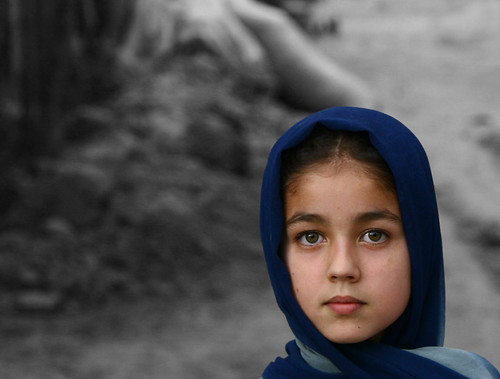
Thursday, April 30, 2009
Javed Aziz Khan
PESHAWAR: The Federal Investgation Agency (FIA) on Wednesday claimed to have busted
an international gang of human traffickers involved in smuggling over 5,000 jobless youth abroad.
The ringleader identified as Maula Bakhsh Baloch, an Iranian national, was held from Peshawar International Airport along with his Iranian accomplice, Dil Murad Baloch, when they were on their way to Karachi via a domestic flight.
“He is probably the leading human trafficker of the country who has smuggled thousands of people - 4,500 to 5,000 of whom were later deported by different countries — to Iran and from there to Muscat, Turkey, Egypt and European countries and onward,” FIA Inspector Shahid Ilyas told The News.
The FIA officer, who was visibly excited over the ‘catch’, said that a case was registered against the two accused under Sections 3 and 4 of the Prevention and Countering of Human Trafficking Ordinance.
The accused persons were produced before a local court, which remanded them into FIA custody for two days. Maula Bakhsh Baloch was reportedly also wanted to Iran and Afghanistan in innumerable cases of human trafficking.
“The two Iranian nationals visited areas of Swabi, Mardan and Nowshera to get advance from those willing to go to Muscat, Iran, Turkey, Cyprus or even Europe. They were asked to reach a market in Karachi from where they would be boarded in buses to leave for Kalatoo village on Pak-Iran border,” Shahid disclosed, adding the Kalatoo village has around 50 houses, but two buses leave for the town from Karachi everyday to transport hundreds of people coming from across the country to go abroad illegally.
It is learnt that those wishing to go abroad are smuggled normally in containers supposed to transport food, oil and other items to Iran. In one such ugly incident in Quetta last month, 45 Afghans were suffocated to death in a container that was being smuggled to Iran.
The human traffickers had abandoned the container after they failed to cross them over to Iran. From Iran, it is learnt, they are sent to Muscat, Oman and Gulf countries. Those wishing to go to Cyprus, Egypt and other European countries are boarded on buses to cross the Iran-Turkey border.
The FIA had launched an operation to stop human trafficking through sea, while Operation Fox Hunt was kicked off to counter the crime through land route in 2005. The agency officials are of the opinion Maula Bakhsh, an Iranian Baloch in his 40s, has links with local traffickers through his subagents. “We are after the local agents and will nab them soon,” Inspector Shahid claimed, saying the problem they are facing is that human trafficking is not normally considered a social crime.
Original Story from The News







+-+ONE+VOICE+TO+END+SLAVERY+4112009+52012+PM.bmp.jpg)







